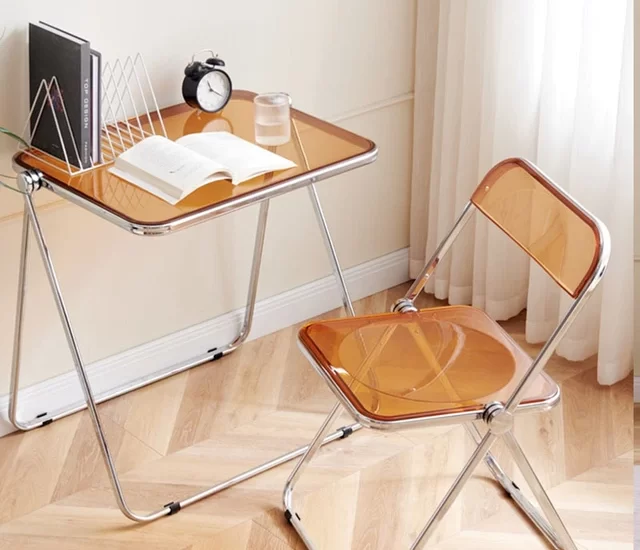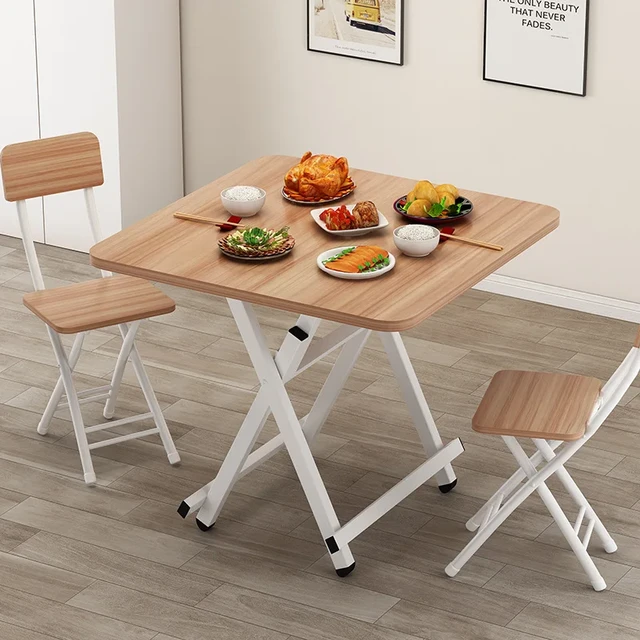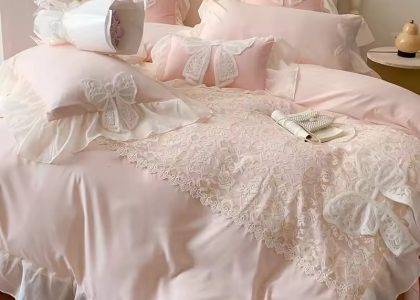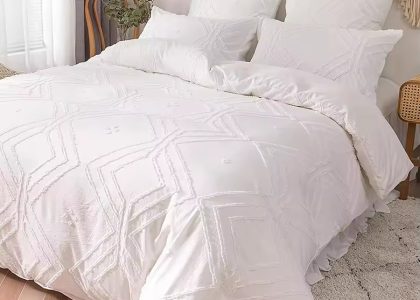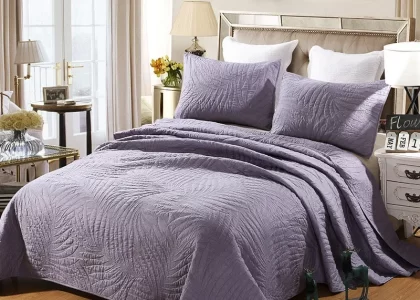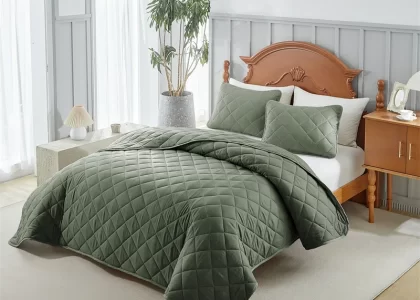Introduction:
Foldable tables have become increasingly popular as versatile and practical furniture pieces that can be easily stored and used in various settings. These tables feature a folding mechanism, which allows for compact storage and effortless portability. In this comprehensive guide, we will explore the benefits, types, uses, and maintenance of foldable tables. By understanding the versatility and convenience that foldable tables offer, you can confidently incorporate them into your living or working spaces.
Benefits of Foldable Tables
Space-Saving:
Foldable tables are designed to maximize space efficiency.
They can be easily folded and stored when not in use, making them ideal for small apartments, offices, or outdoor areas.
Portable:
The folding mechanism of these tables allows for effortless portability.
They can be easily transported to different locations, making them suitable for parties, events, or outdoor gatherings.
Versatility:
Foldable tables come in various sizes, shapes, and designs to suit different needs and preferences.
They can serve as dining tables, workstations, study desks, crafting stations, or even buffet tables.
Easy Setup:
Setting up a foldable table is quick and hassle-free.
The folding mechanism allows for easy unfolding and securing, providing instant functionality when needed.
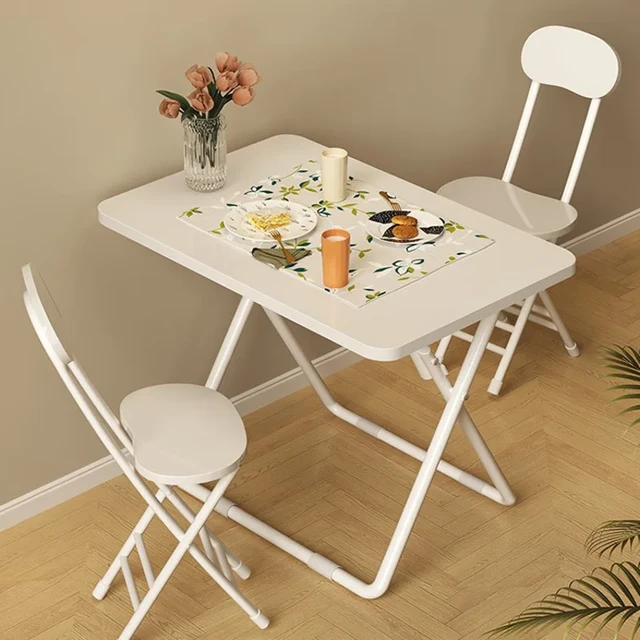 Types of Foldable Tables
Types of Foldable Tables
Folding Dining Tables:
These tables function as regular dining tables but can be folded and stored when not in use.
They are available in various sizes and styles to match different interior designs.
Picnic Tables:
Foldable picnic tables are designed for outdoor use, providing a convenient and portable dining solution.
They often come with attached benches or seating options for easy setup and storage.
Folding Workstations:
These tables are designed for work or study purposes, providing a dedicated space that can be easily folded away.
They offer a practical solution for those with limited space or for creating temporary work areas.
Outdoor Camping Tables:
Foldable camping tables are lightweight, compact, and easy to transport.
They are designed specifically for outdoor use and can be folded and packed away for camping trips or picnics.
Uses of Foldable Tables
Dining and Entertaining:
Foldable dining tables offer additional seating options for parties or family gatherings.
They can be set up to accommodate extra guests and folded away when the event is over.
Workspace and Study Areas:
Foldable tables provide flexible workstations and study areas.
They can be set up in small apartments, home offices, or dorm rooms and folded away to save space.
Outdoor Activities:
Foldable tables are perfect for outdoor activities such as picnics, camping, or beach outings.
They provide a convenient surface for dining, playing games, or preparing food.
Arts and Crafts:
These tables are practical for arts and crafts activities.
They offer a stable and spacious surface for painting, drawing, sewing, or other creative pursuits.
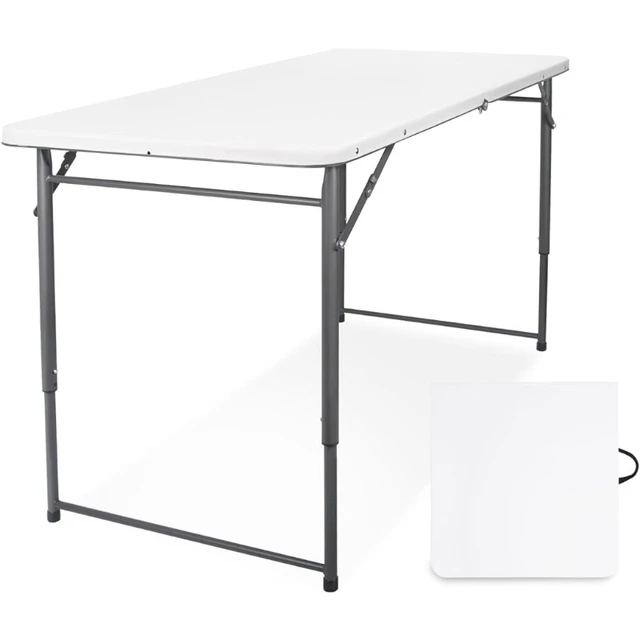 Pros and Cons of Using a Folding Table with a Pillow as Backrest On Bed
Pros and Cons of Using a Folding Table with a Pillow as Backrest On Bed
Using a folding table with a pillow as a backrest can provide convenience and comfort when using a laptop or doing other activities while in bed. However, it is important to consider both the advantages and drawbacks of this setup.
Pros:
Convenience and Mobility:
Using a folding table allows for easy setup and mobility. It can be quickly unfolded and adjusted to a suitable height, providing a stable surface for various activities like using a laptop, reading, or writing. The flexibility of a folding table allows you to quickly move it aside when not in use.
Comfortable Backrest Support:
Placing a pillow between your back and the headboard, then leaning against it, can provide comfort and support while sitting up in bed. The softness of the pillow acts as a cushion, minimizing discomfort and strain on the back and spine.
Accessibility and Accessibility:
Having a folding table within reach while in bed allows for easy access to items such as books, snacks, or remote controls. It eliminates the need to constantly get up or reach for things on a nearby surface, enhancing convenience and overall relaxation.
Cons:
Limited Ergonomics:
Using a folding table with a pillow as a backrest may not provide optimal ergonomics for extended periods of use. Without proper back support and height adjustment, it can lead to poor posture, strain on the neck and back, and potential discomfort or pain.
Lack of Stability:
Compared to a traditional desk or table, a folding table on a bed may not provide the same level of stability. It could be prone to movement or wobbling, especially when typing or engaging in activities that require precise movement or control.
Limited Space and Surface Area:
A folding table typically offers a smaller surface area compared to a regular desk or table. This limitation may restrict the space available for spreading out materials or using additional peripherals alongside a laptop, limiting productivity or multitasking capabilities.
Using a folding table with a pillow as a backrest on a bed offers convenience, mobility, and comfortable back support. It allows for easy setup and accessibility of items. However, it may lack the ergonomic support and stability of a traditional desk or table, potentially leading to poor posture and discomfort during extended usage. Additionally, the limited surface area may impact productivity and multitasking abilities. Considering these pros and cons will help determine if this setup is suitable for your specific needs and comfort requirements while working or relaxing in bed.
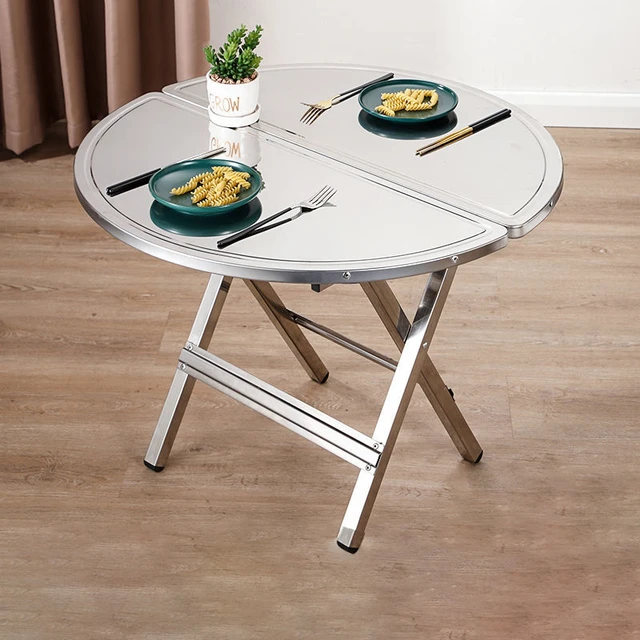 Maintenance of Foldable Tables
Maintenance of Foldable Tables
Cleaning:
Clean foldable tables regularly by wiping the surface with a damp cloth.
Use mild soap or a gentle cleaner for tougher stains, and promptly dry the table to prevent water damage.
Storing:
Ensure the table is fully dry before folding and storing it.
Store the table in a clean and dry area to avoid dust accumulation or potential damage.
Checking Mechanisms:
Regularly check the hinges, locks, and other folding mechanisms to ensure they are in good working condition.
Lubricate the hinges if necessary to prevent rust or stiffness.
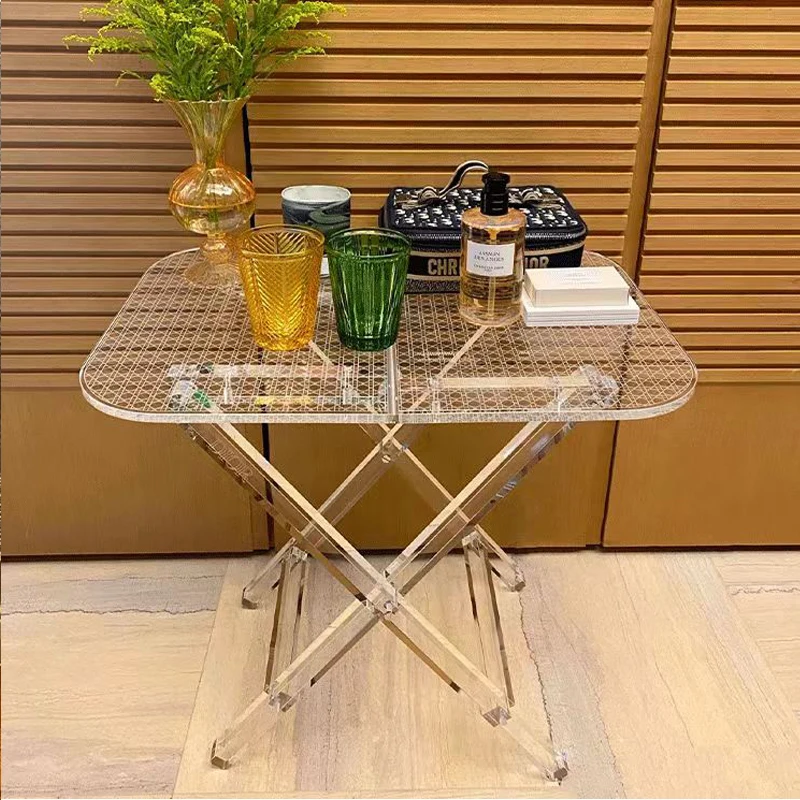 Conclusion:
Conclusion:
Foldable tables offer a versatile and space-saving solution for various living and working environments. With their compact design, easy setup, and portability, they provide convenience and functionality. Whether used for dining, work, outdoor activities, or arts and crafts, foldable tables are practical and user-friendly. By understanding the benefits, types, uses, and maintenance of foldable tables, you can effectively incorporate these versatile furniture pieces into your daily life. With their ability to adapt to different settings and maximize space efficiency, foldable tables are an excellent choice for those seeking convenient and flexible furniture solutions.

